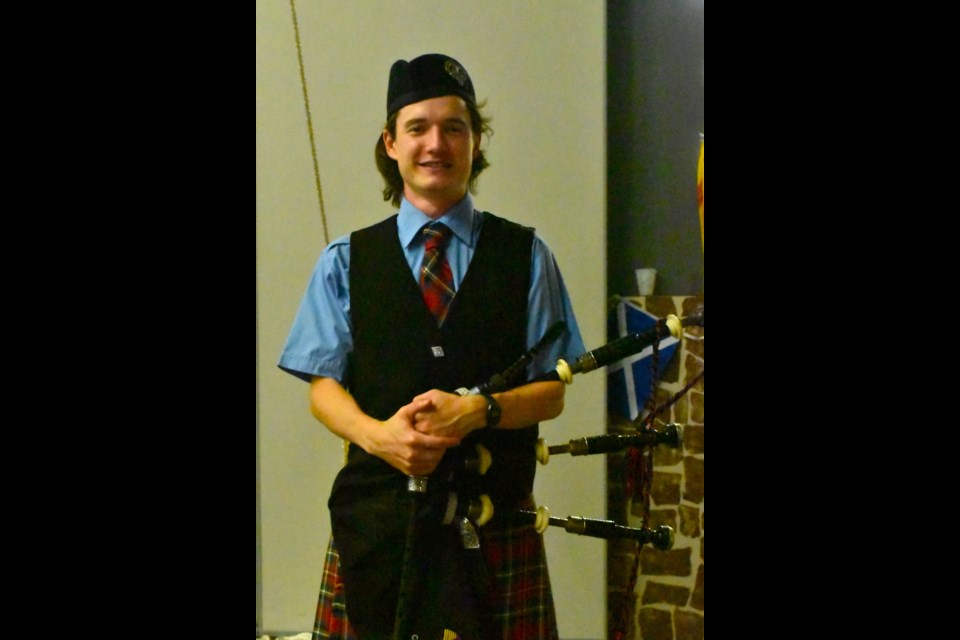SASKATOON — Youth involvement in the Saskatoon Folkfest is critical to the future of the annual event that celebrates the city's cultural diversity, according to Folkfest Executive Director Terresa Strohan. The three-day festival, from Aug. 17 to 19, gave residents and visitors outside the city and the province a cultural glimpse of the participating ethnic groups.
“The Folkfest has had a Youth Ambassador program for many years in which each culture and each community nominate two or three youths to be their youth representative. They officially represent their community and are involved in different outreach activities. They go through a formal program where they meet weekly and practice the intercultural dance, performed on the first night of the Folkfest,” Strohan told SASKTODAY.
“They also have meaningful discussions on anti-racism and cultural representation in the media. So, from that perspective, the Folkfest focuses on ensuring that a youth voice is part of the event. Their communities also work hard to put priority on youth involvement. There are many youth performers, and it is exciting for the Folkfest to see youth involvement knowing there will be cultural continuity where traditions will be passed down.”
Seventeen out of the 21 members of the Saskatoon Folkfest joined this year with their pavilions spread out in the city, including six each at the Merlis Belsher Place (Cameroon, Iranian, Norwegian, Sri Lanka and Vietnamese) and Prairieland Park (Chinese, Indian, Pakistan, the Philippines, Scottish and Ukrainian Karpaty). Afghanistan, Brazil and Mexico participated as guest groups and are emerging communities in the city.
“At the International Place [Merlis Belsher], it allows emerging communities to be involved. We hope that by having a venue for them [emerging communities], we can continue adding the number of cultures and diverse groups. These groups do not have the volume and capacity to have a pavilion of their own,” added Strohan.
“Afghanistan performed last year and again this year while also having a couple of tables for display. That is what the International Place provides. The opportunity for them to participate in the Folkfest in a smaller capacity but still be able to show their culture.”
Raphael Mercier is one of the young performers at the Folkfest, where he joined the 96th Highlanders Pipes & Drums, Saskatoon’s Youth Pipe Band, in entertaining the crowd with traditional Scottish music at the Scottish pavilion. His great-grandfather was from Scotland, and he grew up hearing the sound of bagpipes and watching parades as his parents had him learn their Scottish roots and keep their traditions alive.
Watching those parades and hearing the bagpipes being played struck him. He has been playing the piano, but he was drawn to the sound of the bagpipes and curious about how it was played. Having the bagpipes piqued his interest in playing the instrument, his parents looked for a local band, Saskatoon’s youth band 96th Highlanders Pipes and Drums.
“The bagpipe struck me as a different instrument and an interesting way to play it. I started learning to play the bagpipe and have been playing for 20 years now. I am also teaching the youth with the same band that I started with,” Mercier, who added that the bagpipe was more challenging to learn physically than the piano, told SASKTODAY.
“I say, now, the piano is challenging to learn since it has many notes when you play it. You can play multiple different notes on a piano compared to the bagpipe. You only have nine notes for the bagpipe, but it is a challenging instrument physically. The bagpipe, essentially, is a flute. However, it is louder, and you have these drones sticking out. The piano and bagpipe are different instruments. It is harder and easier to learn both in some way.”
Saskatoon’s youth pipe and drums band accepts kids starting at age nine and can stay until they are 18 years old. Instructors teach how to play the bagpipes, and the band practices every Monday before they perform in events like the three-day Saskatoon Folkfest and the Highland Games in Regina and Calgary, where they compete against other bands.



